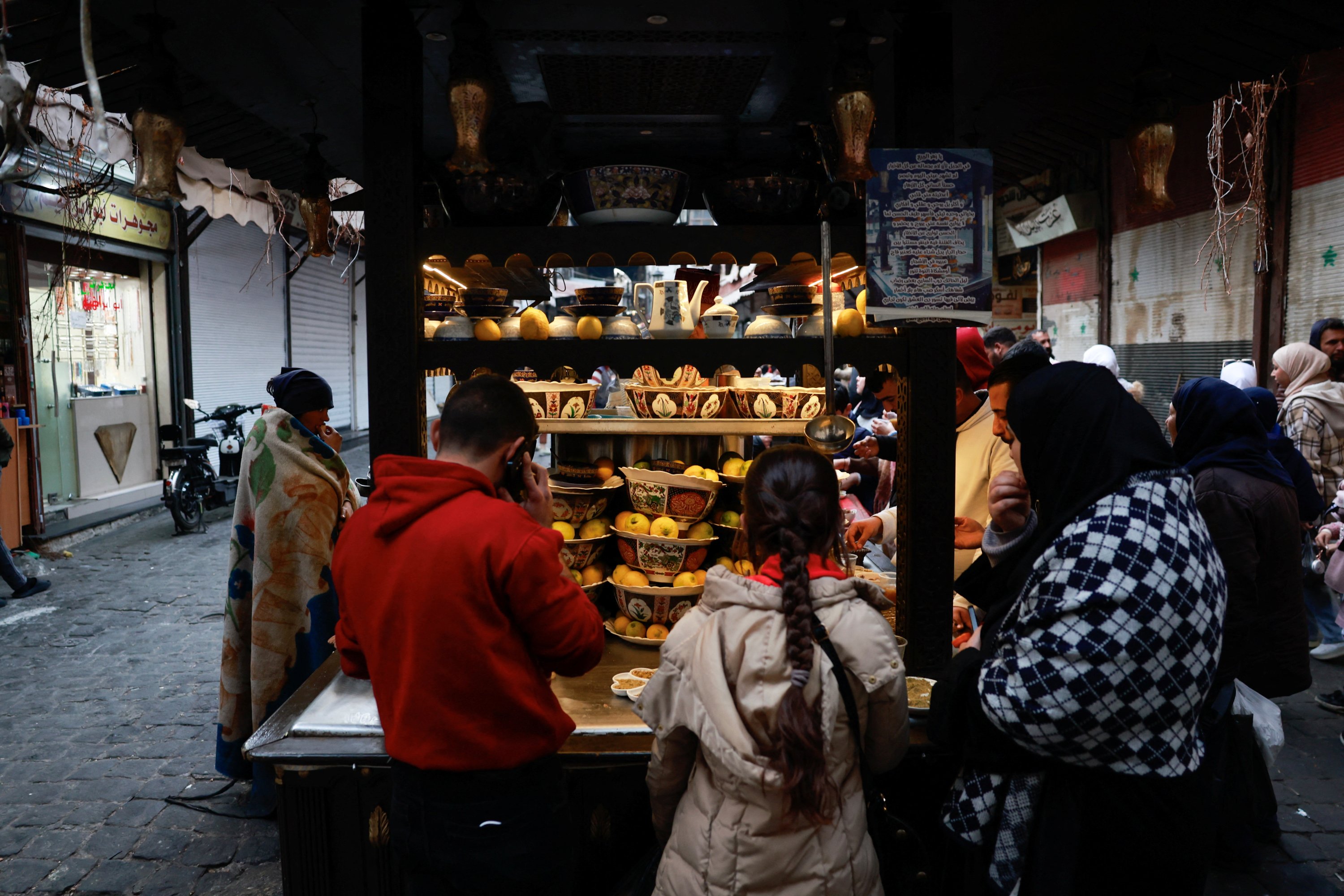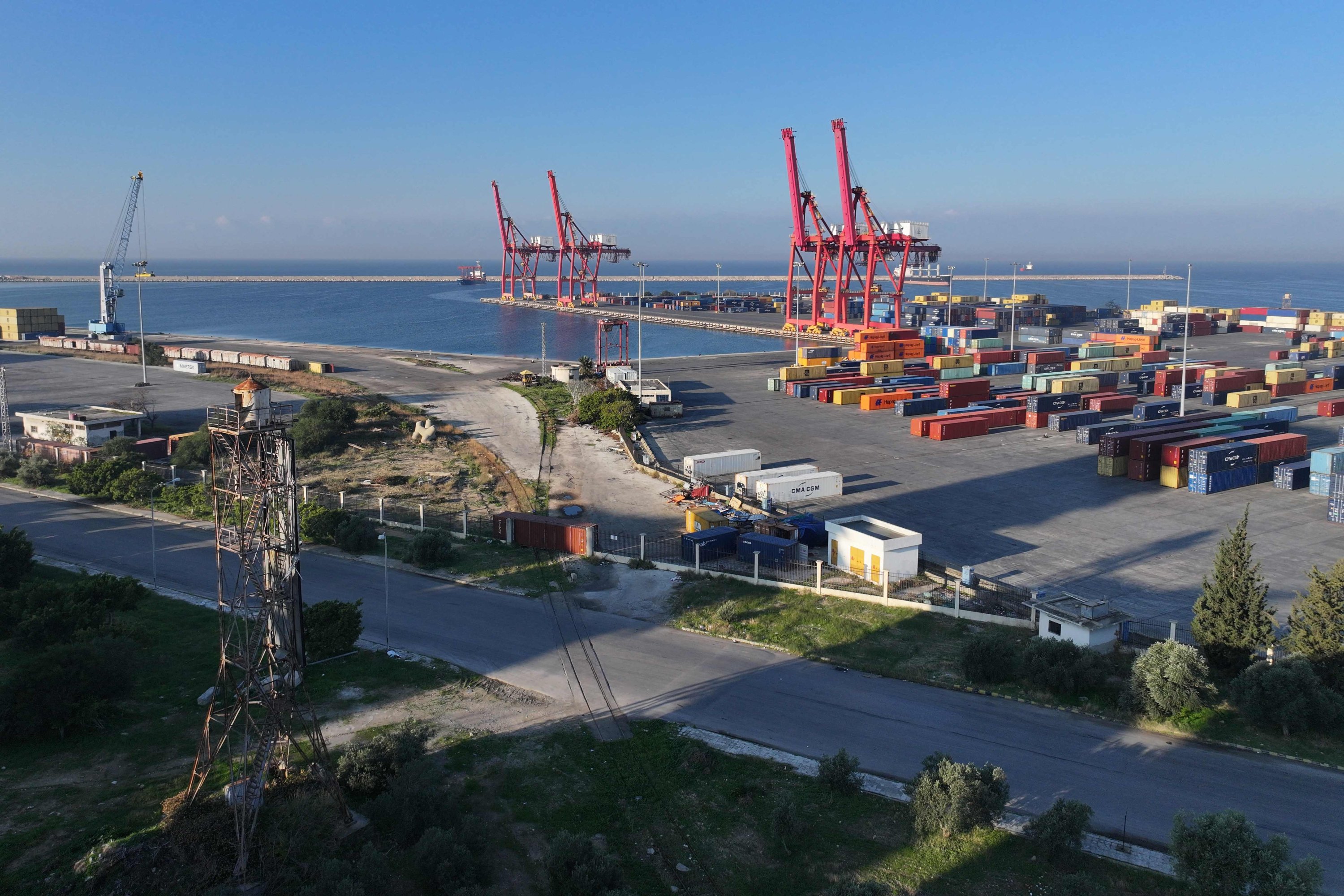Türkiye is expected to play a pivotal role in rebuilding Syria’s economy following the fall of the regime of Bashar Assad earlier this month, experts opined, while representatives of some Turkish sectors anticipate they could leverage their expertise and contribute to employment and production in the war-torn country.
Under decades of Baath Party rule, Syria’s economic progress was severely hindered, leaving the country with deteriorated economic indicators and major challenges, including rampant inflation and a disrupted trade balance.
With its strategic location linking Asia, Europe and Africa, Syria is now poised for a potential economic recovery, particularly in trade.
Türkiye, one of the region’s largest economies, imported $363.5 million (TL 12.75 billion) worth of Syrian goods and exported $2 billion in products to the country last year.
Industry representatives highlight opportunities for increased trade cooperation between Türkiye and Syria, particularly in agriculture, construction and energy.
The shares of major Turkish construction companies rallied sharply in the first days after the fall of Assad, and analysts said there would be significant opportunities for Turkish companies in the construction, cement and steel sectors following the political shift in Syria.
Political stability, international support
Ali Mamouri, a research fellow at Deakin University in Australia, told recently Anadolu Agency (AA) that the road to Syria’s reconstruction will be far from smooth in the short term.
“A new government would need to prioritize stabilization efforts to restore public confidence, attract foreign investments and rebuild essential infrastructure. However, recovery will depend heavily on internal political cohesion, the support of international actors and the region’s response,” he said.
Mamouri emphasized the need for the new government to develop a comprehensive recovery plan and take immediate measures to stabilize the national currency.
“The destruction of infrastructure has severely impacted the economy,” he said. “Rebuilding roads, power plants and communication networks will be essential to revitalizing economic activity and creating jobs.”
Mamouri highlighted that addressing humanitarian needs, including access to food, education and health care, is critical during the reconstruction process.
“While political and economic sanctions will likely remain in place for some time, Syria may need to negotiate with regional powers and international organizations for humanitarian assistance, loans and trade agreements,” he said, adding that lifting sanctions should be the country’s top priority moving forward.
He noted that Syria’s oil and natural gas reserves could play a vital role in its recovery. However, years of civil war have significantly reduced production, necessitating substantial investments and stability to revive the energy sector.
He also pointed out the importance of rebuilding Syria’s once-thriving agriculture sector, particularly in fertile regions near the Euphrates River.
Additionally, he suggested that tourism, bolstered by Syria’s rich cultural heritage, could become another major revenue stream.
Revitalizing industries like textiles and food processing could further boost employment and exports.
Mamouri added that Syria’s strategic location enables it to serve as a key transit point in the East-West trade network, connecting Iraq, Jordan, Türkiye and Europe.
Türkiye’s role in rebuilding Syria
Mamouri noted that Syria’s 2023 budget, amounting to $5.88 billion, or $256 per capita, is “less than one-quarter of its 2011 level,” according to a UNICEF report.
“Syria’s budget is currently in a dire situation, with limited revenue generation capacity due to the ongoing conflict, economic sanctions and widespread destruction of infrastructure,” he said.
He said the International Monetary Fund (IMF) and the World Bank have not extended support to Syria because of the ongoing war and sanctions.
“If a new government is established, it will likely need to focus on mobilizing regional and international support for rebuilding and stimulating growth,” he added.
However, amid recent developments, the IMF said earlier this week it was “monitoring the situation” and was ready to support Syria’s reconstruction when conditions allow.
“It’s too early to make an economic assessment. We are closely monitoring the situation, and we stand ready to support the international community’s efforts to assist serious reconstruction as needed and when conditions allow,” IMF spokesperson Julie Kozack said on Thursday.
Regarding Türkiye’s involvement, Mamouri said its expertise in construction, infrastructure development and investment opportunities will be instrumental in Syria’s recovery.
“Turkish companies could be involved in rebuilding Syria’s infrastructure, including energy, transportation and telecommunications; additionally, Syria’s potential involvement in Türkiye’s plans for regional energy transit from Qatar to Europe. For example, Türkiye could benefit from increased trade and energy cooperation, providing a gateway for regional energy resources,” he said.
Revival of Qatar-Türkiye pipeline
Indeed, the question and discussions about reviving the “Qatar-Türkiye Natural Gas Pipeline,” which was shelved in 2009, have resurfaced following the ouster of Assad in Syria.
Yet, while it was initially a key part of Qatar’s diversification strategy, Doha has repeatedly opted against expanding the project, prioritizing liquified natural gas (LNG) as its primary export avenue instead, Justin Dargin, senior Middle East energy expert at the Middle East Council on Global Affairs told AA recently.
“Although a pipeline to Türkiye would align with Türkiye’s ambitions to become an energy hub and could benefit Europe’s energy diversification goals, it is unlikely to be a priority for Qatar at present,” he noted.
Dargin also underlined that constructing a transboundary natural gas pipeline through the Middle East faces formidable geopolitical and economic challenges.
He said that geopolitically, the region’s volatility is a major obstacle, adding, “A pipeline passing through Syria, for example, would necessitate not only internal stabilization but also cooperation among multiple regional powers with competing interests.”
International aid crucial for recovery
Victor Tricaud, a senior analyst at the U.K.-based consultancy firm Control Risks, in his remarks to AA similarly pointed out that Syria’s economy has been in a state of severe crisis, particularly since 2019, and this instability is likely to persist in the coming months.
“The key determinant for an eventual recovery will be the provision of international aid and the lifting of sanctions, or at least the introduction of exemptions, to allow foreign capital to finance reconstruction,” he said, noting that Syria’s productivity has suffered under decades of authoritarian rule.
Tricaud said the most pressing challenge for the new government will be maintaining economic activity, including ensuring the continuity of public services and security.
He suggested that an interim government could re-establish tax collection mechanisms and reduce corruption, which would help generate significant revenue, especially from customs duties once borders reopen. State-owned enterprises could also contribute to stabilizing revenues.
Syrian pound, stabilizing
With Assad gone, the Syrian pound started to recover against the dollar, moneychangers and traders said last week, as foreign currencies again became available on the local market.
“Everything happened at once: the regime fell, prices dropped, life got better,” Abu Imad, who was selling vegetables from his car at a square in central Damascus, told Agence France-Presse (AFP) recently.
“We hope it isn’t temporary,” he added.
Stabilizing and opening up the economy is seen by economists as crucial to encouraging desperately needed fresh investment and the potential return of millions of Syrians, including many from the educated middle class, who fled from the war.
“Syria has a huge, educated, relatively wealthy diaspora which will want to rebuild the country. They could be growing double digits for years,” a senior regional financial official told Reuters earlier this month, speaking on condition of anonymity.
For Türkiye, which hosted many Syrian refugees following the uprising in 2011, the new period means a shift in labor dynamics but also a potential to be involved in trade and rebuilding due to geographical proximity.
Textile sector
In this context, representatives of the textile and retail sectors emphasize that Türkiye is one of the countries that will contribute the most to the reconstruction of Syria.
Ahmet Öksüz, chairperson of the Istanbul Textile and Raw Materials Exporters’ Association (ITHIB), told AA on Sunday that there are great opportunities for Türkiye in Syria as he cited the advantages in terms of logistics and proximity.
Pointing to the notable Syrian population in Türkiye, especially when evaluated in terms of the labor force, he said: “They were working in many areas. Now that they have returned to their country, it will be in our best interest to establish some production facilities there.”
“Provided that the transition remains orderly, that sanctions are rolled back or exemptions introduced, and that foreign economic assistance is mobilized, including from large multilateral development banks, regional entities that seek to participate in the reconstruction of Syria will likely benefit from access to large-scale infrastructure projects financed by development actors,” Tricaud said.
“Furthermore, foreign players will likely gain access to investment opportunities presenting high potential returns, given the country’s significantly untapped economic potential after years of stymied economic growth,” he added.


